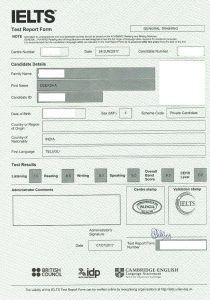Speaking Part 3 Questions for the Topic of Change:
This topic is currently being used: Oct – Dec 2017.
- Why do old people not accept change?
- Why do some people keep changing their jobs?
- What changes have occurred in your country in the last few decades?
Sample Answers
Why do old people not accept change?
- Answer 1: I guess one of the main reasons they don’t accept change is because they have spent the last few decades living a life of routine. For that reason, they find it difficult to alter that routine in order to accept changes. For example, old people who have been used to going to into the bank to do transactions find it difficult to change this habit and bank online. I think new technology must be really challenging for them.
- Answer 2: I think some old people are afraid of change. I mean, they find it difficult to understand and learn new ways of doing things and this makes them feel afraid. They don’t want to expose their age or their weaknesses so they try to resist change.
Why do some people keep changing their jobs?
- Answer 1: Well, I think some people change their jobs frequently for no other reason than they can’t find a permanent position. But other people choose to change jobs. I mean, they want to try difficult jobs in order to learn new skills, have new experiences and enjoy the opportunities that life has to offer.
- Answers 2: It’s not easy to say why people change their jobs but I suppose that career growth is one of the reasons. There are so many people trying for the same jobs or trying to get promotion that people need to show a range of skills and the ability to adapt. So, by changing jobs frequently, they can develop their CV and hopefully have a better chance of a better job.
- Answer 3: I don’t think people have much choice these days. It’s really hard to find a long term job that offers good job security. So, people have no choice but to move from one job to another. But it’s also a good way to develop new skills in different fields and hopefully land a better position.
What changes have occurred in your country in the last few decades?
- Answer 1: There have been so many changes it’s hard to choose which one to talk about. I think there have been big changes in education, mainly university education. When I was younger, all students had access to free university education but now they have to pay which means they leave university with greater debt but with less job opportunities at the end of it.
- Answer 2 posted from a student: In Nigeria here, some changes has taken place over the past few decades. We the Nigerians have witnessed how a small religious sect metamorphosed into a full blown globally recognized terrorist group. Indeed, our once peaceful country changed into a war zone where the lives and properties of her citizens aren’t secured. We also witnessed a great change in the political arena where for the first time ever, an incumbent president contested and lost the presidential elections to the opposition party.
More IELTS Speaking Model Answers
You can find more model answers and speaking tips on my main speaking page: IELTS Speaking Main Page







